Case Study
Vitamin Angels Supports Maternal and Child Health in Mexico
Vitamin Angels works with local partners to bring critical nutrition interventions to women and children in rural and low-income urban communities in Mexico.
Published: March 2025
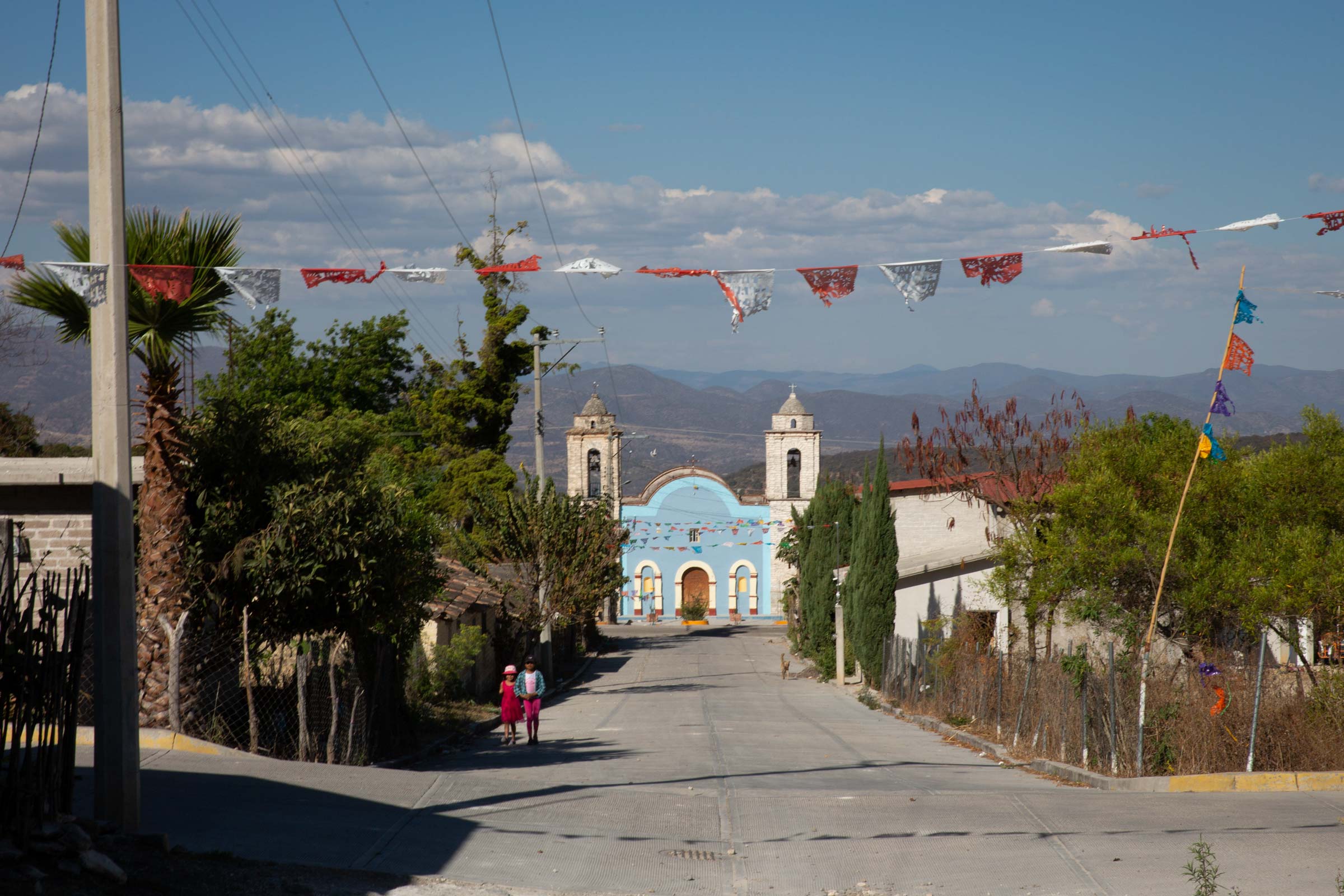
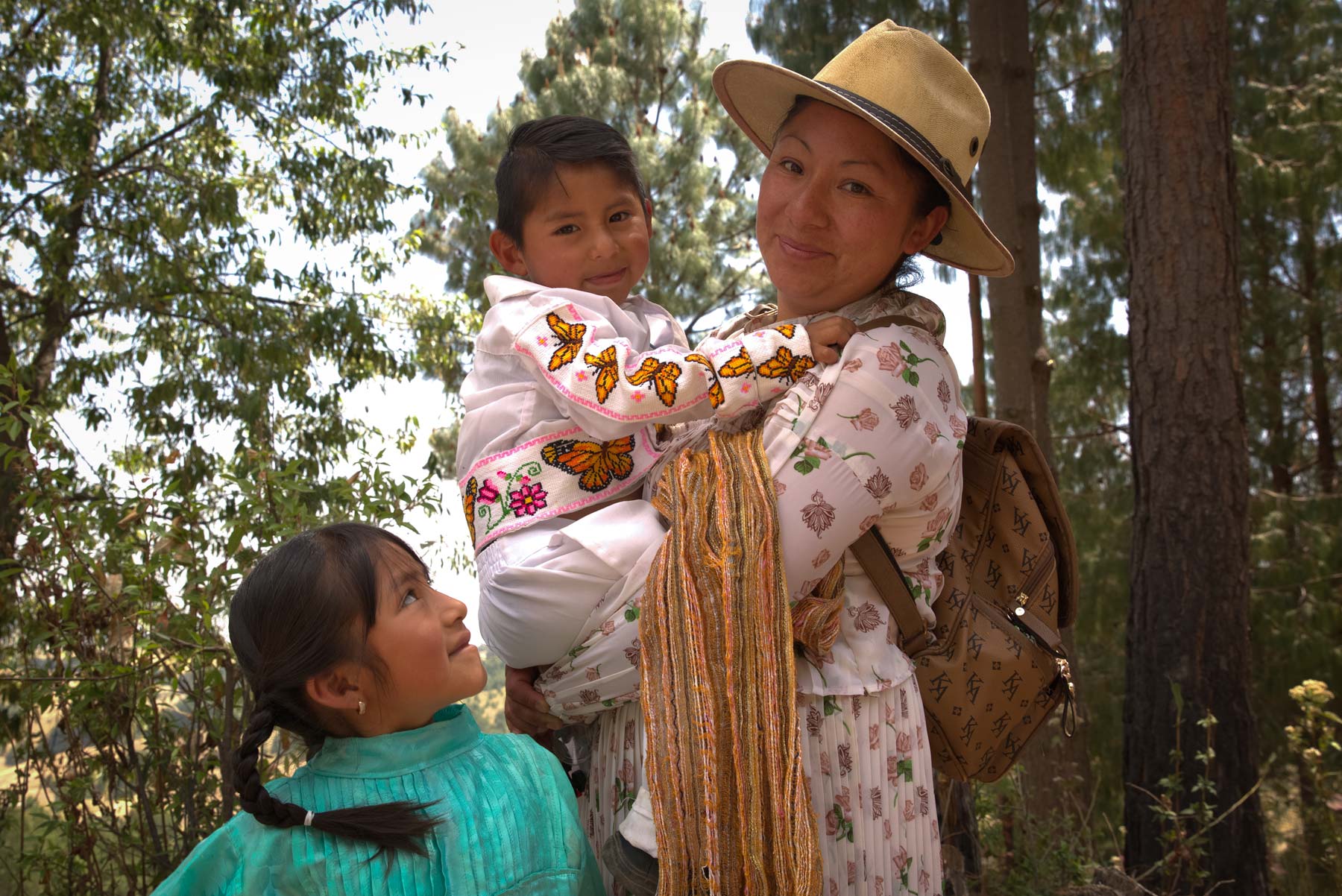
Our Annual Reach in Mexico
Pregnant Women & Babies
388,288 with UNIMMAP MMS
Children Under 5
242,750 with vitamin A supplementation and 151,500 with deworming treatment
National Coverage
31 partners across 25 states
*Reach is based on Vitamin Angels’ shipments that were largely distributed in 2024
Our Team
- Enrique Rios, MD, DrPH, MPH, Country Director, Mexico
- Maria Hirata, MN, Mexico Program Coordinator
- Elizabeth Carrera, Senior Program Officer, LAC
- Jillian Emerson, PhD, Senior Technical Advisor, Nutrition & Implementation Science
BRINGING HEALTHCARE TO RURAL AND LOW-INCOME COMMUNITIES
Rural and low-income urban areas in Mexico often lack access to health services and resources, leaving many women, infants, and children unable to receive necessary care or specialized services like nutrition support.
Vitamin Angels works with community partners to implement high-impact nutrition interventions for pregnant women and young children.
Reaching Women and Children From Rural and Low-Income Urban Communities
Mexico faces a high prevalence of undernutrition and micronutrient deficiency. These burdens are felt deeply in the highlands, where health services are inaccessible to many, leaving nutritionally vulnerable populations, including women and young children, at higher risk of complications and poor health outcomes.
Across Mexico, and particularly in rural areas, there are gaps in the health system when it comes to integrated, high-quality nutrition services. To improve nutrition among pregnant women, young children, and infants, coordinated implementation strategies and nutrition capacity building among healthcare providers are required.
Food insecurity and micronutrient-poor diets are two significant public health challenges in Mexico. The government is working to develop food and nutrition programs that prioritize multisectoral collaboration to deliver sustainable solutions.
Vitamin Angels partners with the federal government, local health authorities, NGOs, and academic institutions to ensure the effective, sustainable scale-up of high-impact nutrition interventions like multiple micronutrient supplements (MMS), complementary feeding support, and vitamin A supplementation and deworming treatment, as a continuum of care from pregnancy through age five.
Vitamin Angels in Mexico
For 10 years, Vitamin Angels has carried out high-impact nutrition interventions in Mexico to improve the health of the population and reduce the burden of malnutrition in pregnant women, infants, and young children. With continued support from government and civil society organizations, we work with 31 partners across 25 states in Mexico.

We want to listen to communities on how to best improve their children’s nutrition, and our package of interventions is an important step. When we reach mothers and children with MMS, complementary feeding support, and vitamin A supplementation, we’ve seen that we can have a greater impact on pregnancy outcomes and the overall health and development of their babies.”
Enrique Rios, MD, DrPH, MPH, Mexico Country Director for Vitamin Angels
PROGRAM SUMMARY
Vitamin Angels works to ensure that program partners and service providers in Mexico have the support they need to safely and effectively deliver nutrition interventions to pregnant women, young children, and infants.
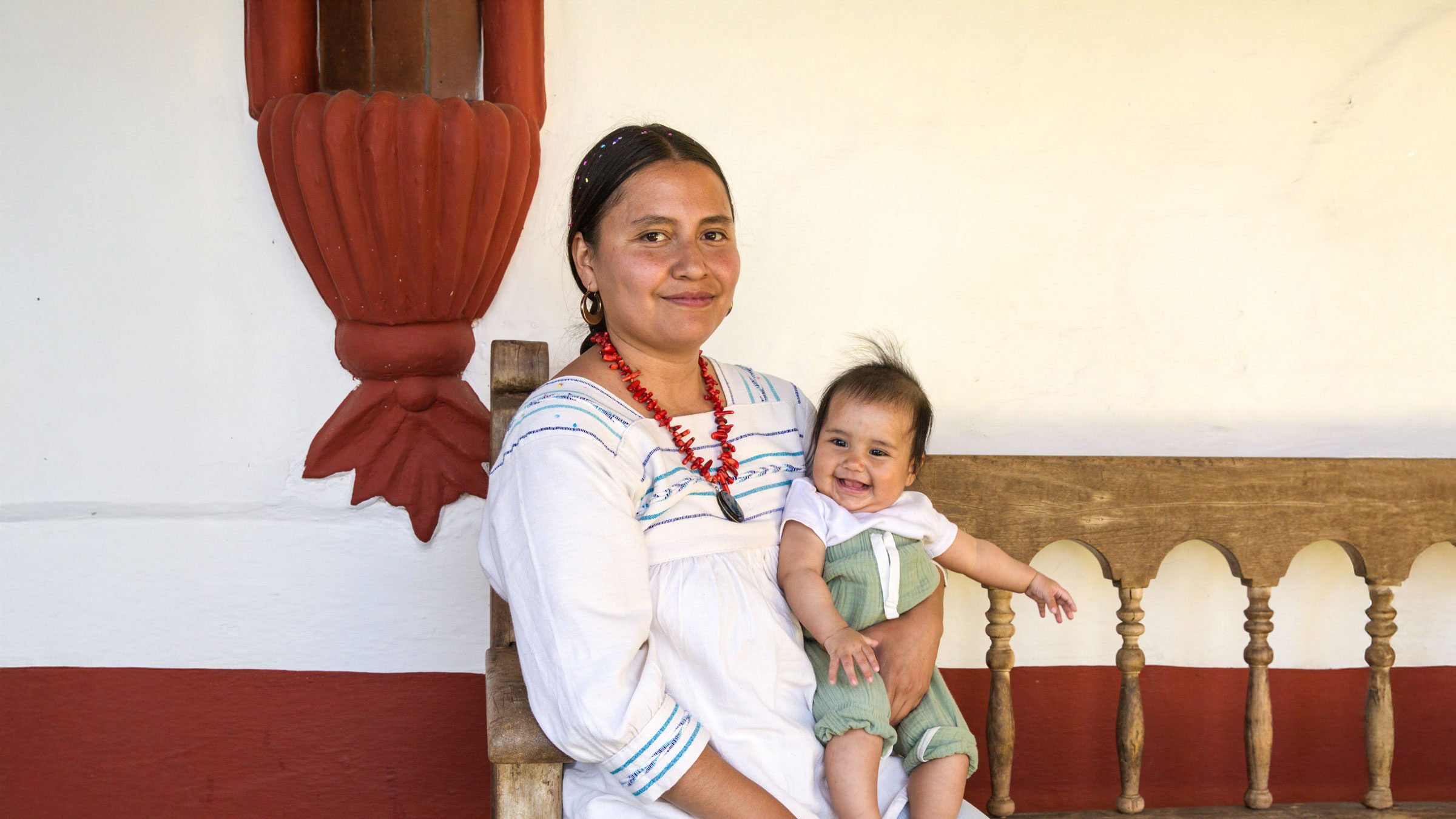
Improving Complementary Feeding Practices
In Oaxaca, many communities are located in rural, hard-to-reach areas and there is a large population of indigenous people who have been historically marginalized. This contributes to food insecurity, lack of access to quality health services, and higher rates of chronic malnutrition compared to other parts of Mexico. As a result, many children do not receive the nutrients needed to support their growth in the early stages of life.
In our data reviews, Vitamin Angels found a lack of information on how children are fed in Oaxaca, especially the micronutrient quality of their diets. Along with our research partners, we conducted a study to understand feeding practices for children aged 6-23 months, when diet quality is critical to optimizing growth and preventing illness.
OUR FINDINGS
Our study revealed that overall, children in Oaxaca were not consuming adequate diets. We found that:
- Many children’s diets consisted largely of “calditos,” or low-nutrient-density, water-based broths.
- Very few protein-rich, animal-based foods were provided, especially to children aged 6-11 months.
- Mothers experienced many challenges – particularly lack of time and purchasing power – in feeding their children optimally.
- Healthcare providers were not well-equipped to provide counseling to mothers on complementary feeding, and lacked training and support tools to provide quality nutrition services.
NEXT STEPS
With these results, Vitamin Angels is designing a strategy to improve complementary feeding practices across Oaxaca. Together with government health authorities, research institutions, and NGO partners, our multi-pronged approach aims to improve the quality of counseling services provided by health workers in facilities and through community activities as well as to reach mothers through digital messages on complementary feeding. A rigorous monitoring and evaluation strategy will document the process and key outcomes, and findings will be used to scale up these approaches in other states across Mexico.
COMMUNITY-FOCUSED PROGRAMMING
In Oaxaca, one of Mexico’s most rural states, children are disproportionately affected by malnutrition and anemia.
Vitamin Angels and our community partners are reaching mothers and young children in Oaxaca with MMS, complementary feeding support, and vitamin A supplementation to support adequate nutrition and healthy growth from pregnancy through early childhood.
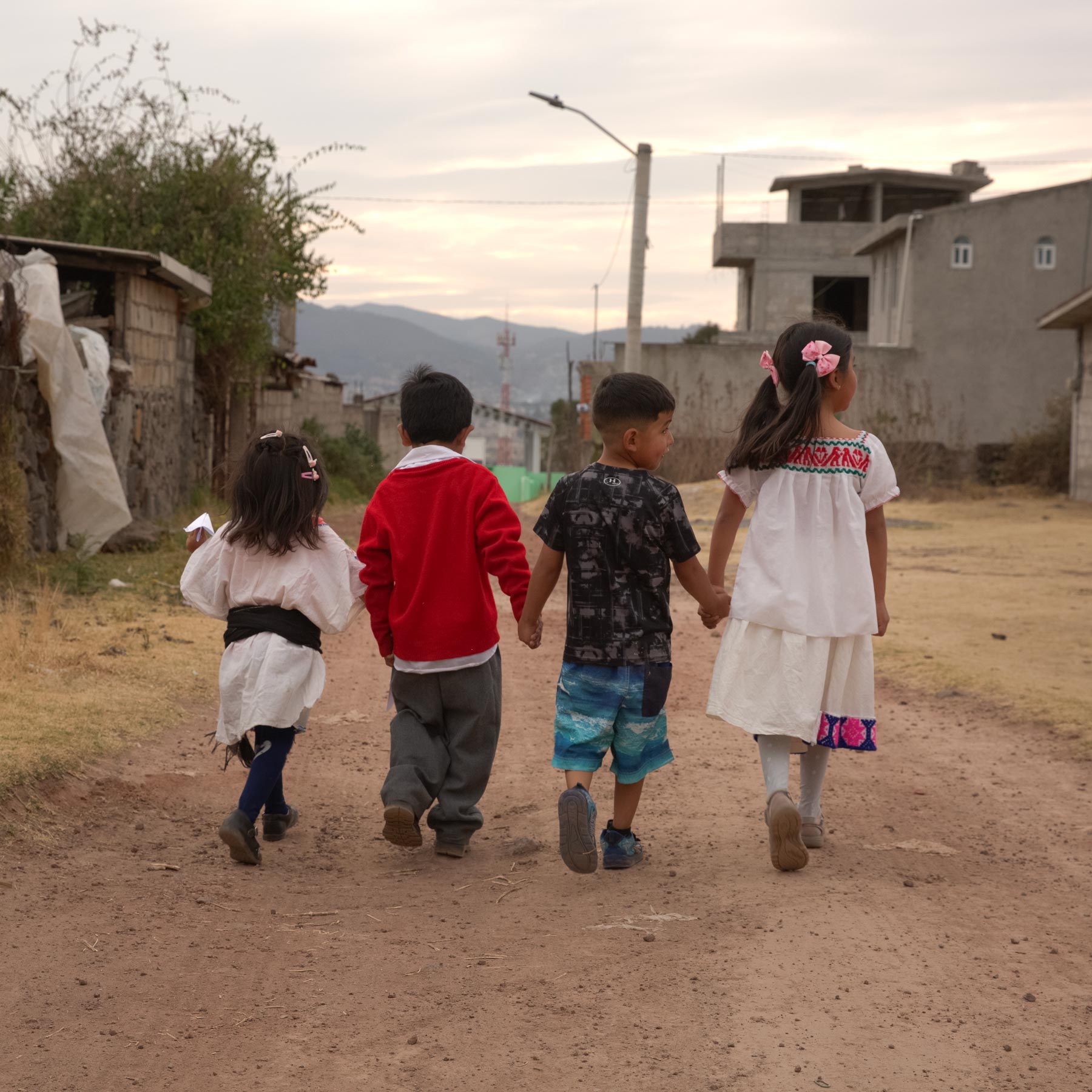
COMBINING NUTRITION INTERVENTIONS
A Full Package of Interventions Can Better Impact Mothers and Babies
Nutrition interventions are effective on their own, and combining interventions has an even greater impact on the health of mothers and babies. With a full package of nutrition interventions (including MMS, breastfeeding, complementary feeding, and vitamin A supplementation), we can support their health at the most important stages of life – paving the way for generations of children to thrive. Learn more.
Supporting Healthy Pregnancies and Breastfeeding Practices Through Implementation Science and Advocacy
Vitamin Angels works to provide mothers, young children, and babies across Mexico with cost-effective, high-impact nutrition interventions.
SCALING UP MMS
Across 25 states, Vitamin Angels is expanding the reach of MMS to pregnant mothers to support healthier pregnancies and improved birth outcomes. Ongoing implementation science projects support the scale-up of MMS nationally. Vitamin Angels works closely with research institutions to provide assistance and with our partners to advocate for nationwide scale up of MMS.
With this data and initial research findings, the National Institute of Public Health of Mexico (INSP), UNICEF, and other partners are advocating for MMS programming and additional funding for implementation research.
SUPPORTING BREASTFEEDING
In Mexico, many barriers – including lack of institutional and health systems support – prevent mothers from achieving optimal breastfeeding practices. Vitamin Angels supported research to understand the support provided for breastfeeding and influences on breastfeeding practices from birth through four months postpartum at two hospitals in the Yucatan state.
As a follow up to this research, a team of stakeholders from Vitamin Angels, academia, the INSP, and the Ministry of Health in Yucatan are collaborating to identify opportunities and strategies to strengthen breastfeeding services in hospitals during birth and the early postpartum period.
ADVOCACY to expand the Reach of MMS
Advocacy efforts to scale MMS, which contains 15 vitamins and minerals to support healthier pregnancies and improved birth outcomes, across Mexico are underway.
In August 2023, the Vitamin Angels team published an article in Cuadernos de Nutrición – a Mexican nutrition journal – advocating for the nationwide scale-up of MMS.
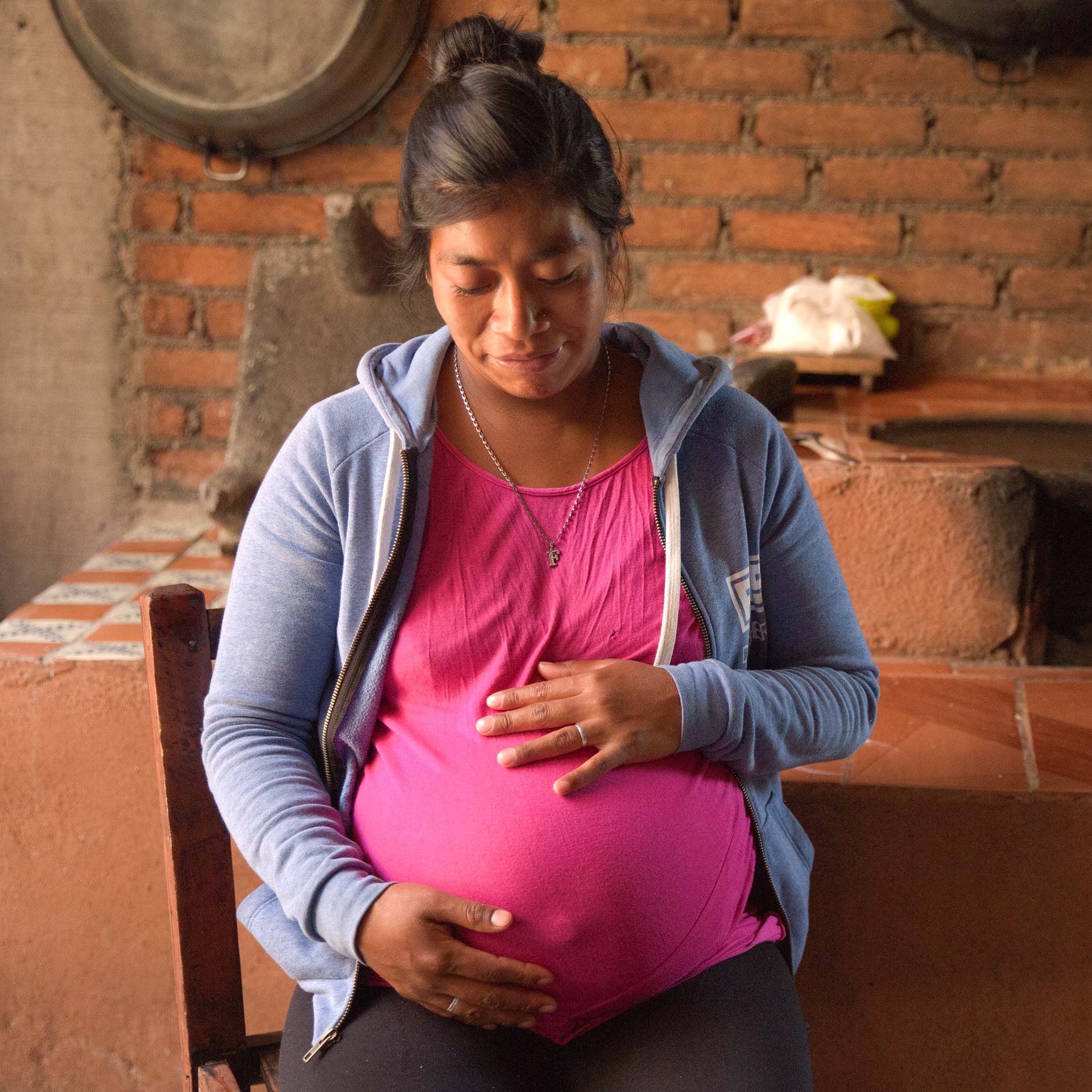
SUCCESS STORIES
Helping Pregnant Women Access Affordable, Local Care
Since 2018, Fundación Luz Para Oaxaca has partnered with Vitamin Angels to provide MMS to the state’s indigenous communities that lack access to healthcare. The foundation helps pregnant women access MMS through community clinics, where they also train health workers to properly distribute nutrition interventions. Together, Fundación Luz Para Oaxaca and Vitamin Angels are proud to help women access trusted care to ensure healthy pregnancies and better birth outcomes.
Our Future
Vitamin Angels looks forward to continuing our support of nutrition services and implementation research across Mexico.
To achieve this, we will:
- Partner with research institutions and NGOs to further explore how we can design nutrition interventions to have the biggest impact on communities.
- Work closely with our partners to support and scale nutrition interventions within underserved communities.
- Conduct advocacy with key stakeholders to prioritize high-impact nutrition interventions and apply implementation science to improve program quality.
- Expand our programs to help all mothers give their babies the nutrition they need.
LOOKING AHEAD
Vitamin Angels will continue to expand vitamin A supplementation, complementary feeding, and MMS programming across Mexico. In the coming years, Vitamin Angels plans to reach 250,000 women with MMS annually and fully integrate complementary feeding programs in communities.

OUR Technical Work
Evidence-Based Interventions to Address Global Malnutrition
Vitamin Angels delivers sustainable public health nutrition interventions to reach women, infants, and children during a critical window of development, from pregnancy to age five. We collaborate with governments and global and local stakeholders to introduce and scale evidence-based nutrition interventions using an integrated, systematic approach. Learn more about our programmatic work.
